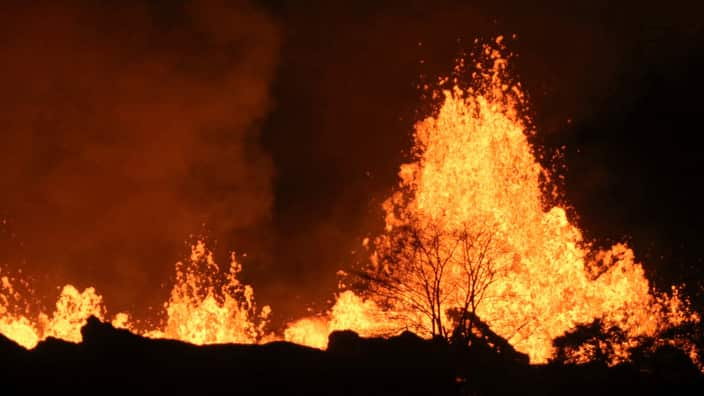KEY POINTS
- A report outlining the national security risks posed by climate change remains secret.
- Foreign Minister Penny Wong says the document will remain out of the public's eye.
- The crossbench is calling for its redacted release.
Foreign Minister Penny Wong has confirmed Labor will keep a key report, reportedly warning of climate change's serious national security implications, out of the public eye.
The government has rejected calls to release even a redacted version of the report, delivered by the Office of National Intelligence last year.
A group of leading defence figures has added their voices to calls for transparency, with former Defence Force chief Chris Barrie telling reporters that Labor had been "missing in action" on the threat.
"This government has followed its predecessor in making China the great enemy. I think it's making a fatal distraction," he said on Wednesday.
"If you don't bring people into the understanding of what needs to be done, then you can't expect them to attack a different mode of emotion ... This is really about leadership. It's about the leaders standing up there and telling us what [the threat] really looks like, as opposed to letting us guess."

Global warming is expected to make natural disasters more frequent, and climate refugees more common. Source: AAP
"If the Australian people are not aware [of], or alerted to, the level of risk that we face ... how can we have confidence that we have an adequate response plan?" independent MP Zali Steggall asked.
Speaking to SBS News soon after, Wong ruled out bowing to that pressure, stressing similar reports were not generally made public.
But she insisted its secret contents would "inform" the government's thinking on how to tackle climate change.
"I would say to people: the government does understand the extent to which climate change is not only an environmental issue and an economic issue, it is a national security issue," she told SBS News.
The document is believed to warn of climate-driven political turbulence in Australia’s region.
The issue has also proved a major fissure in Canberra's relationship with its closest neighbours, who have repeatedly sounded the alarm over the impact of climate change.
In 2020, 14 Pacific leaders criticised Canberra’s "weak" climate targets and use of Kyoto carryover credits under the former Coalition government.
But Wong said Labor, which has since legislated a midterm 43 per cent emissions reduction target, accepted the importance of climate action in its foreign relations.
"[They] have made it really clear that it's the number one national security issue for the Pacific," Wong said.
"I don't think there’s anything secret about that. That is part of our government's clear understanding about the implications and consequences of climate change."










